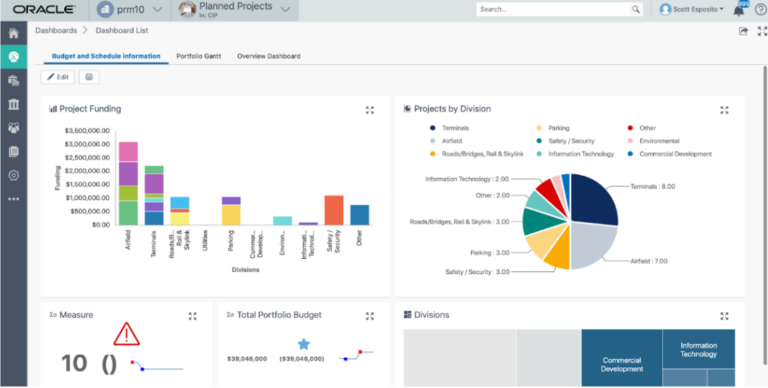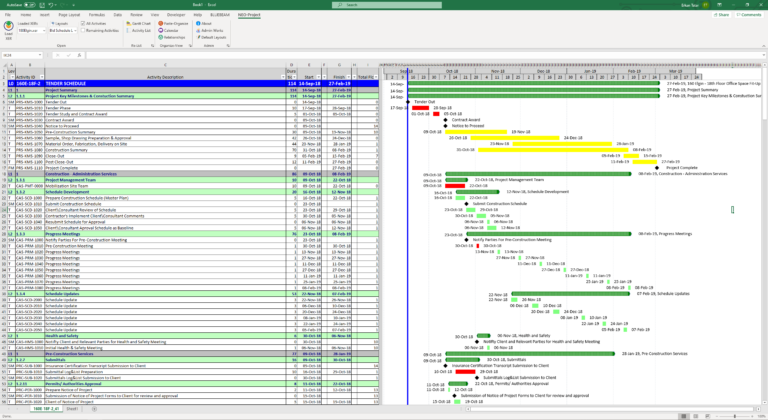Reasons Why Construction Schedules Fail
Construction schedules are a critical part of any construction project. They lay out the timeline and tasks that need to be completed for the project to be successful. Unfortunately, construction schedules often fail. This blog post will discuss why construction schedules fail and what you can do to prevent it from happening on your project.
Underestimating The Project
A construction plan is only as good as the information put into it. If you underestimate the scope or time that a project will take, your schedule will be inaccurate from the start. This can lead to big problems down the line, as tasks begin to pile up and deadlines are missed. To avoid this, do your research and allocate enough time and resources for each task in the schedule.
Getting a scheduling manager or consultant involved early on in the project can also help avoid this problem. They will have experience with similar projects and will be able to give you a more accurate estimate of the time and resources that will be needed.
Scope Creep
Scope creep is a common problem in construction projects. It occurs when the scope of the project changes after the schedule has been created. This can happen for many reasons, such as changes in the design, additional requests from the client, or unforeseen problems that arise during construction.
Scope creep can easily throw off a construction plan. To avoid this, be sure to have a clear and concise scope of work for the project. Any changes to the scope should be approved by all parties involved before they are implemented. Also, encouraging the clients to conduct due diligence early on can help avoid scope creep later in the project. In some cases, it may be necessary to have a contract outlining the scope of work and penalties for scope creep.
Delays
Government approvals and permit delays are common causes of construction plan failures. Other delays can be caused by weather, material shortages, equipment breakdowns, or labour problems. Some of these delays may be out of your control, depending on the site location. However, there are things that you can do to minimize the impact of delays.
To avoid delays, you should try to anticipate potential problems and have a plan in place to deal with them. For example, if you know that the site is located in an area with a high risk of hurricanes, you may want to schedule the project during the winter months. If you are working in an area with a shortage of skilled labour, you may need to bring in workers from other areas. Also, get a project manager to deal with getting permits and government approvals. By having a plan to deal with potential delays, you can keep your project on track even when problems arise.
Surprise Conditions
Natural disasters, asbestos, and other hidden conditions can lead to construction plan failures. These conditions are often unforeseen and can cause significant delays. Overlooking potential problems like these can be disastrous for a construction project.
While some natural disasters are uncontrollable, there are steps that you can take to minimize the impact of hidden conditions. First, do your research before starting the project. This includes checking for flood zones, getting a soil report, and checking for asbestos. Second, have a contingency plan in place to deal with potential problems. This may include having a separate fund for unexpected costs or setting aside time in the schedule for dealing with problems.
Unclear Specifications
Poorly written or unclear specifications can lead to many problems, such as material shortages, delays, and cost overruns. Unclear specifications can also make it challenging to find the right contractors and suppliers for the project. This can be costly, but it can also lead to delays if the wrong contractors are hired.
To avoid such problems, enhancing communication between the project manager, architects, engineers, and other relevant personnel. There should be a clear understanding of what is required for the project. All specifications should be reviewed and approved by all parties involved before being finalized. In addition, using software that can help to manage the specifications can also be beneficial. By having clear and concise specifications, you can avoid construction plan failures.
Financial Problems
Construction project management is a complex process, and one of the most critical aspects is financial management. If the finances are not managed properly, it can lead to many problems, such as cost overruns, delays, and even legal issues.
There are several things that you can do to avoid financial problems. First, you should have a clear understanding of the project budget. Second, you should track all costs closely and regularly review the budget to ensure that there are no overages. Finally, you should have a contingency fund in place to deal with unexpected costs.
Unreliable Employees
Lacking a reliable workforce is one of the most common causes of construction delays. This can be due to many factors, such as labor shortages, absenteeism, and poor quality of work. When there are not enough reliable workers, it can lead to several problems, such as material shortages, schedule delays, and cost overruns.
It is essential to build positive relationships with employees and ensure that they are reliable. First, you should screen all employees carefully to ensure that they are qualified. Also, you should establish clear expectations and provide adequate training. Finally, you should offer incentives for employees who meet or exceed expectations.
Communication Challenges
Effective communication is essential for any construction project. Poor communication can lead to several problems, such as material shortages, schedule delays, and cost overruns. It can also make it difficult to resolve conflicts and make decisions. Getting a project manager skilled in communication can be beneficial as they will be able to work with all parties involved and ensure that everyone is on the same page.
It is also vital to establish a chain of command and have a clear understanding of who is responsible for what. In addition, you should use construction management tools, such as project management software, to help with communication. By having clear and concise communication, you can avoid construction plan failures.
Poor Planning
Inflexible and tight schedules are one of the most common causes of construction delays. If a project is not adequately planned, it can lead to many problems, such as material shortages, labor issues, and cost overruns. Account for surprises and Murphy’s law when creating the construction schedule to help avoid delays.
Monitor your schedule regularly and make adjustments as needed. It is also essential to have a contingency plan in place in case of unexpected delays. By having a well-planned project, you can avoid construction schedule failures.
Lack of Experience
One of the most common causes of construction delays is a lack of experience. If a project manager or contractor does not have enough experience, it can lead to several problems like material shortages, labor issues, and cost overruns. Make sure that you hire a project manager or contractor who has experience with your type of project.
It is also essential to provide adequate training for all employees. An experienced and properly trained team can help you avoid construction schedule failures.
Construction schedules fail for several reasons. The most common causes of construction delays are poor communication, inadequate planning, and inexperienced workers. To avoid construction plan failures, you should clearly understand the project budget, track all costs closely, establish clear expectations, and offer incentives for employees who meet or exceed expectations.






